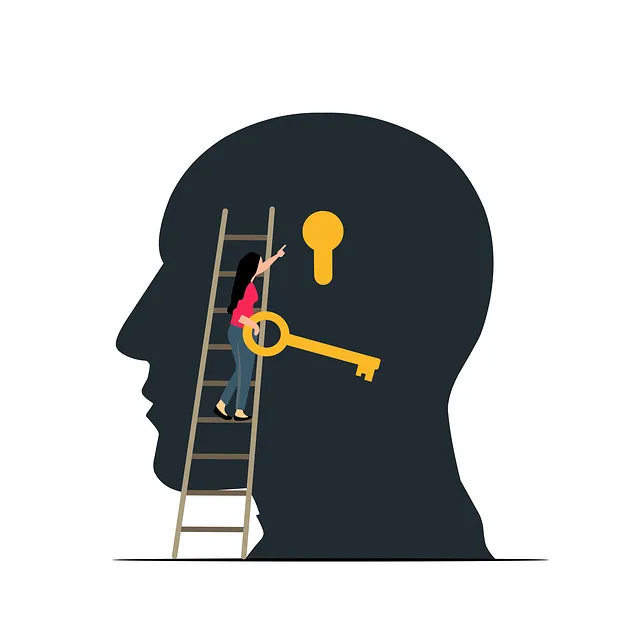Broomfield Kaiser's Mental Health Classes offer a supportive community environment, combining interactive discussions, mindfulness exercises, and educational sessions to empower individuals in managing stress, communication, and resilience. Effective group facilitation techniques, including strategic activities, empathy-building, and community development, create engaging and therapeutic spaces. Facilitators guide participants through self-awareness exercises and emotion exploration, fostering inner strength and unique perspectives for Mental Health Policy Advocacy. The program's evidence-based practices, like cognitive-behavioral techniques, contribute to reducing mental illness stigma.
Mental wellness group facilitation plays a crucial role in fostering community and supporting individual growth. This article explores effective techniques through the lens of Broomfield Kaiser mental health classes, offering insights into how facilitators can create safe, engaging environments. We’ll delve into understanding mental wellness dynamics, reviewing the unique approach of Broomfield Kaiser’s classes, and uncovering powerful facilitation strategies to enhance group interactions and promote healing.
- Understanding Mental Wellness Group Facilitation
- Broomfield Kaiser Mental Health Classes: An Overview
- Effective Techniques for Group Facilitation
Understanding Mental Wellness Group Facilitation

Understanding Mental Wellness Group Facilitation involves recognizing the power of collective support and shared experiences in fostering inner strength development. At Broomfield Kaiser mental health classes, facilitators play a crucial role in creating a safe and inclusive environment where participants can engage in self-awareness exercises, explore their emotions, and learn from one another. This supportive setting is essential for navigating the complexities of mental health challenges, promoting healing, and enhancing overall well-being.
Effective group facilitation techniques go beyond simple conversation; they encompass strategic activities that encourage active participation, empathy, and a sense of community. By integrating Self-Awareness Exercises into these sessions, facilitators enable individuals to gain deeper insights into their thoughts and behaviors. Moreover, through open discussions and collaborative problem-solving, participants can contribute to Mental Health Policy Analysis and Advocacy, sharing their unique perspectives and experiences to drive positive change on a broader scale.
Broomfield Kaiser Mental Health Classes: An Overview

Broomfield Kaiser Mental Health Classes offer a supportive environment for individuals seeking to enhance their mental wellness. These classes are designed to foster a sense of community and inner strength development through various facilitation techniques. The program implementation includes interactive discussions, mindfulness exercises, and educational sessions focused on promoting positive thinking.
Attendees can expect to gain valuable insights into managing stress, improving communication skills, and cultivating resilience. By participating in these classes, individuals not only gain access to expert guidance but also build connections with like-minded folks. This community outreach program aims to empower participants to take charge of their mental health and navigate life’s challenges more effectively.
Effective Techniques for Group Facilitation

Effective techniques for group facilitation play a pivotal role in fostering engaging and therapeutic environments, particularly in mental wellness contexts like Broomfield Kaiser mental health classes. One powerful approach is utilizing interactive activities that encourage active participation. This could involve breaking participants into smaller groups for discussions or assigning roles that facilitate peer-to-peer support, such as designated listeners or facilitators within the group. These strategies not only enhance engagement but also promote a sense of belonging and shared understanding.
Additionally, incorporating structured yet flexible agendas ensures that sessions remain focused while accommodating individual needs. Facilitators should aim to create a safe space where participants feel comfortable sharing their experiences without fear of judgment. Techniques like open-ended questioning, active listening, and validating emotions contribute to this environment. Moreover, integrating evidence-based practices, such as cognitive-behavioral techniques for mood management or depression prevention, can provide valuable tools for mental illness stigma reduction efforts within the group setting.
Mental wellness group facilitation is a powerful tool, as evidenced by successful programs like Broomfield Kaiser mental health classes. By employing effective techniques discussed in this article, facilitators can create supportive environments that foster healing and growth. Understanding the nuances of group dynamics and using tailored methods ensures every participant feels heard and supported on their mental wellness journey.






